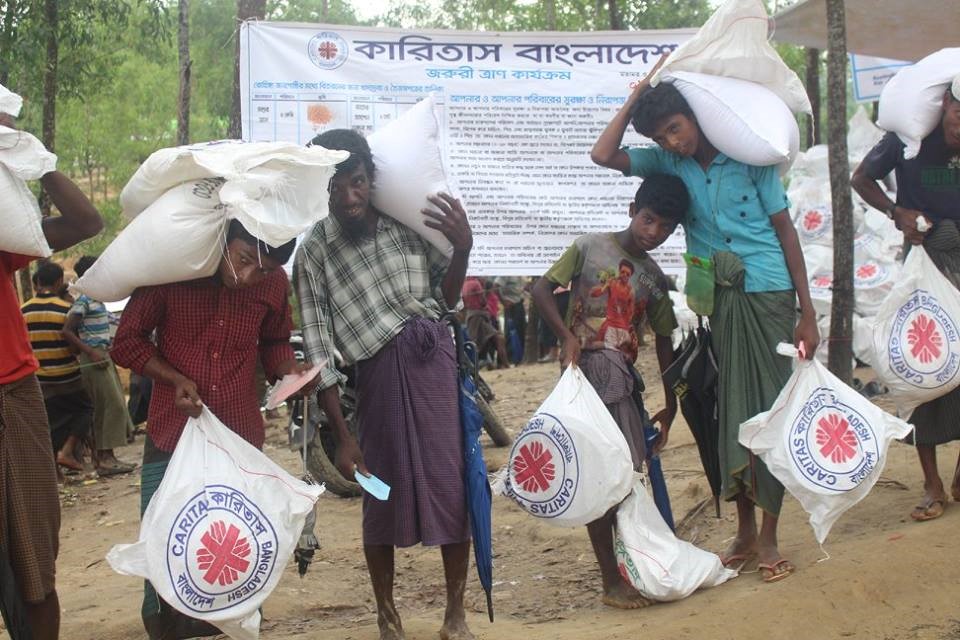Shifitng the Power has been reacting to the crisis in Rakhine State, Myanmar and the influx of refugees coming into Bangladesh. They have been collaborating very closely with various other partners to give a united and rapid response to the crisis.
Violence in the Rakhine State, Myanmar which began on 25th August 2017 has driven an estimated 537,000 Rohingya across the border into Cox’s Bazar, Bangladesh. The speed and scale of the influx has resulted in a critical humanitarian emergency. The Disasters and Emergency Preparedness Programme (DEPP) has been actively involved in responding to the Rohingya crisis.
Shifting the Power (StP) partner, the Dhaka Ahsanian Mission (DAM) raised £16,000 to support 4000 families by providing health services. Additional funding is in the pipeline from partners internal funds along with funding from Christian Aid UK, CORD Aid and Save the Children for health and education support. DAM's response is being supported by Christian Aid, one of the Shifting the Power consortium members. This is the first time DAM and Christian Aid are collaborating in a response effort.
Sajida Foundation another partner of StP, who had previously little experience working in the humanitarian sector, has raised £7,407 from their internal sources and received funding from Broken Earth Canada to provide health and psycho-social support to 5000 families.
Three more StP partners, Caritas Banagldesh, CCDB, DSK are also responding to the crisis. Around 85,680 displaced households are being supported with supplementary food, shelter, NFI & hygiene kits, safe water, healthcare and psycho-social care. Partners are mobilizing funds from multiple sources including their own contingency funds.
The Talent Development project also deployed some humanitarian graduates to help with the Rohingya response in Bangladesh. They shared how they have been able to support the Department for Disaster Management and what they have learnt. Click here to read more about what their training consisted of and how it helped make the humanitarian response to the Rohingya crisis in Bangladesh more effective.
Want to know more about the Disaster and Emergency Preparedness Programme? Click here
What is Shifting the Power? Click here to read more
Click here to read more about the Talent Development Project.

